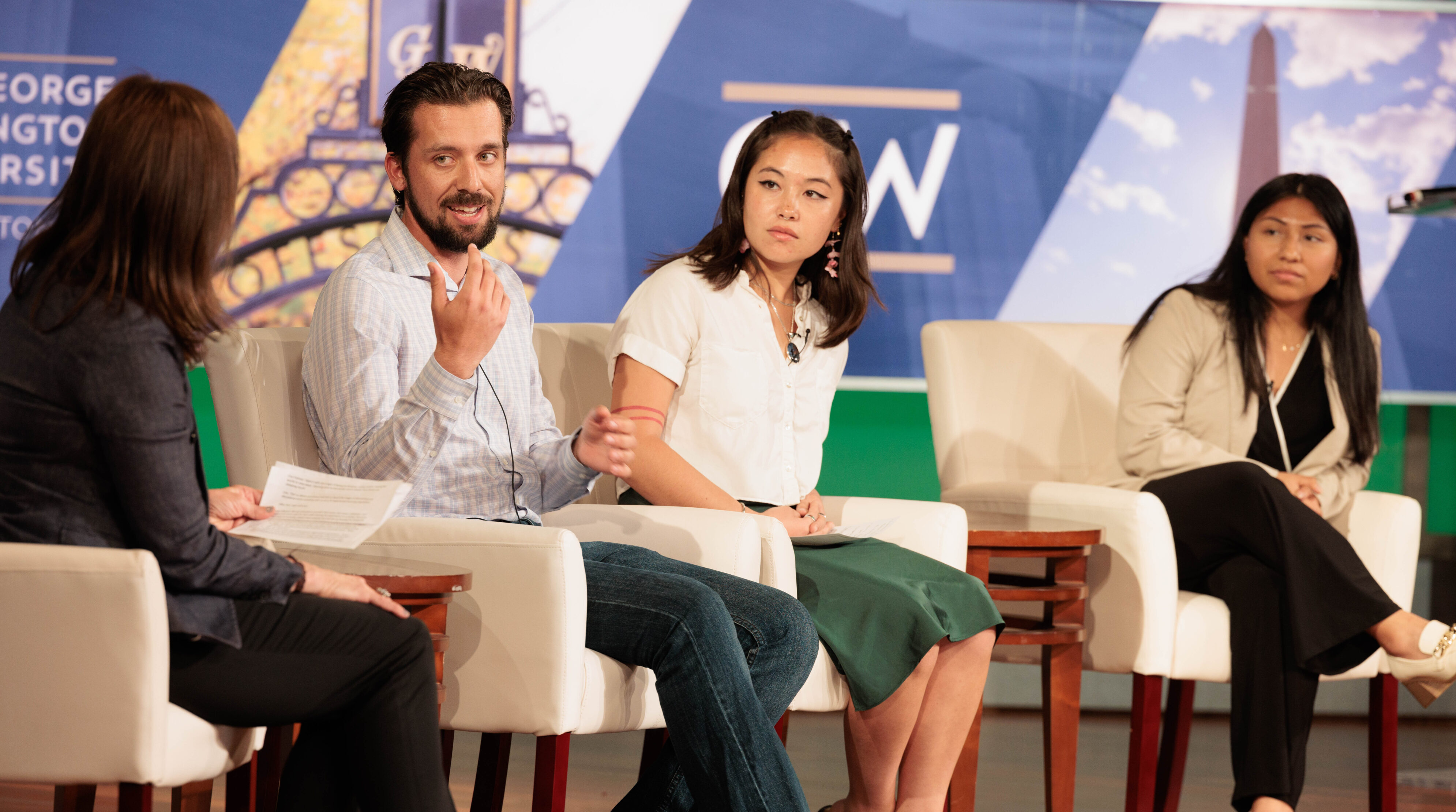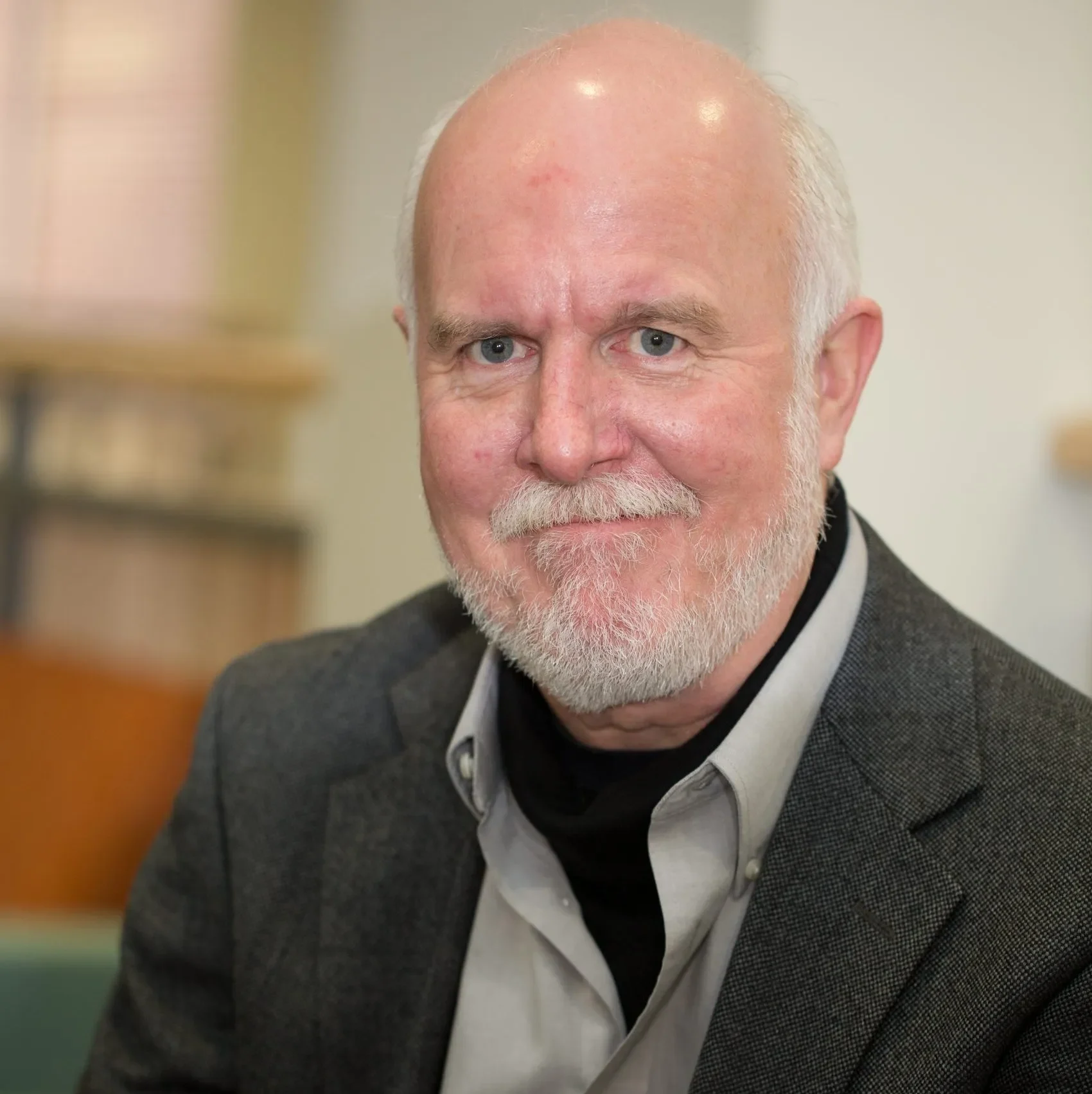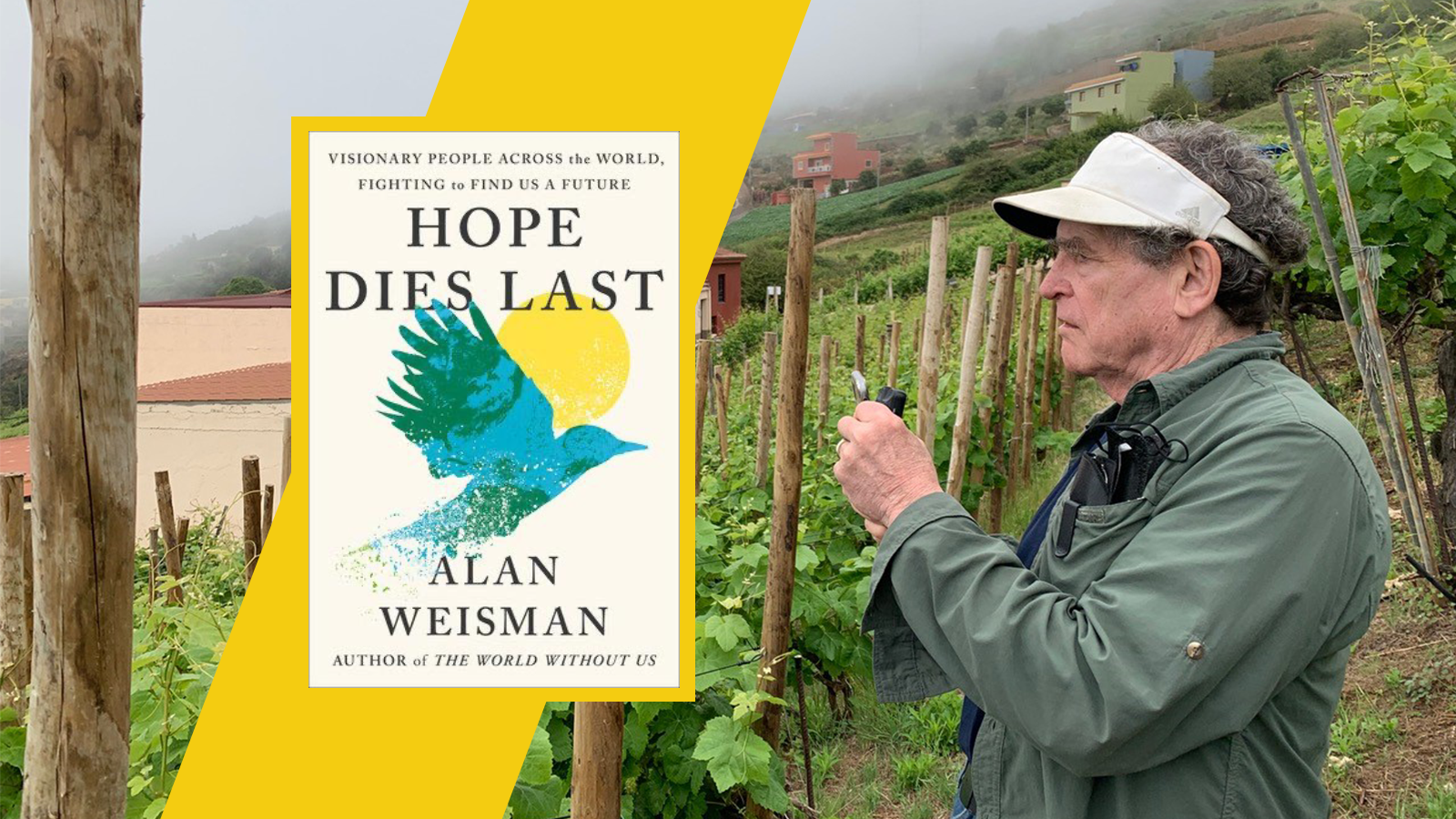Q&A: Talking climate, Paris Accord with The Nature Conservancy’s Duncan Marsh
Editor’s Note: This is the first in our series of Expert Voices sharing their thoughts on how we move the planet forward following the United States’ withdrawal from the Paris Climate Accord.
Duncan Marsh has been Director of International Climate Policy for The Nature Conservancy (TNC) since 2006. Previously he worked at the State Department as a climate change negotiator, contributing to the Kyoto Protocol — the predecessor to the Paris agreement. Other work he performed at the State Department included negotiating technology and transfer elements of international climate change negotiations.
At TNC, Marsh’s work has concentrated on reducing emissions, deforestation, and climate finance. He has lead negotiations on behalf of TNC in global forums that include the U.N. Framework Convention on Climate Change and Forest Carbon Partnership Facility. Marsh understands international politics on climate change and his opinion on the withdrawal of the Paris Accords is rooted in experience and fact.
The following is excerpts from Planet Forward’s conversation with Marsh.
Planet Forward: You have worked very closely on climate agreements leading up to the big one in Paris. How does this withdrawal impact you, personally? How will this change your job?
Marsh: I would say we’re “shifting the goal post.” It’s not like climate change policy has changed. There are always interest groups that slow down the process and some of those interest groups are represented by governments. It’s still a setback from the overall goal of emission reduction in the U.S. The nature of the work is not likely to change but the efforts will be ramped up further to build the political constituency in the U.S.
Q: Will the U.S. leaving hurt the countries who remain in the pact?
A: There are direct and indirect effects if the U.S. slows down its efforts to reduce emissions. Since the U.S. has been the largest contributor in history, we will be affecting other countries. The poorer countries and more vulnerable countries will be most affected by the U.S. withdrawing. If we fail to follow through with the funding obligations, that will harm other countries including ourselves. The growth is expected to come from growing countries. If we don’t help them then we will be exacerbating climate change and the effects of it.
The bigger question is what impact this will have on negotiations. Will countries want to stay in or will they be less enthusiastic to stay in because the U.S. is not doing what they should do. It’s a profound abdication of responsibility (to withdraw from the agreement).
The U.S. Climate Alliance will help a great deal in assuring the rest of the world that the U.S. is committed to the goals of the agreement. They see that the majority of the U.S. population and businesses take climate change seriously and will act on it. The climate change efforts will survive after the Trump administration.
Q: The New York Times reported that the formal withdrawal mechanism takes four years, but American officials could stop participating in climate talks immediately. How do you see the Trump administration handling this?
A: I think they will still stay in international communications. (Rex) Tillerson said it was important to stay at the table and most in the administration think that too. It is important to stay at the table and to be constructive and not to shake things up. It would be destructive behavior pattern and not be good for the international community as a whole.
But I do expect them to participate in a relatively neutral way. This decision will hugely disempower the negotiations and other countries will not take the us seriously. It’s hard to say what the administration will do in the timeline going forward. Trump’s speech was a lot of bluster and fairly offensive to the rest of the world that want to solve this problem and a lot of the language that was dismissive to the world as a whole. The funding obligations to the green climate fund, we knew they were not going to fund or support the clean power plant act. A lot can happen in the two to 3 years that it takes for the formal withdrawal in the international. The response of cities states and business are so strong and the admin should consider that when withdrawing from the agreement in general.
Q: Since the announcement on June 1, governors, mayors, university leaders and companies across the U.S. have banded together to form the U.S. Climate Alliance — saying they’re “still in” and will forge ahead with the protocols in the agreement. How do you think the U.S. leaving — and not having the federal push behind efforts — will affect state, city and other individual efforts?
A: I certainly think they are strong enough to do a great deal. I think we’ll see continued movement to a low carbon development. … there are a few exceptions. The coal industry wants to maintain its status regardless of what agreements there are. Natural gas is what’s causing the coal industry to decline — and not just natural gas, but sharply decreasing costs of renewable energy.
The coal industry we expect to shrink, and the rise in renewable energy around the country will continue to grow. If you want to make your political argument about keeping American jobs then you need to look toward the future and not the past.
The cities and states and business that are still in, they will be able to have an impact — even without the federal government. It is uncertain if the group can meet the goals set by the Paris agreement. And we understand that national-level regulation in the country and that regulatory agencies are important and that businesses would rather have a unifying system to be able to meet the carbon goals instead of state by state. Federal regulations are important, but it is not a goal of the Trump administration.
Q: California Gov. Jerry Brown signed its own agreement with China to reduce carbon emissions. Do you think we’ll see more agreements like this — and will they be effective?
A: California already has been a part of many international treaties… Like with Canada in trading utilities. There already is important trading between Canada and California and there will be a lot more coming up in the future with other states and countries.
Q:How does this withdrawal change the way we tell the climate story?
A: I think we may be to witness something we didn’t fully expect when President Trump withdrew from the agreement. The response from this country, business, states, and cities have been so profound and that it is possible that this becomes a tipping point for public support — for the public to address climate change.





















